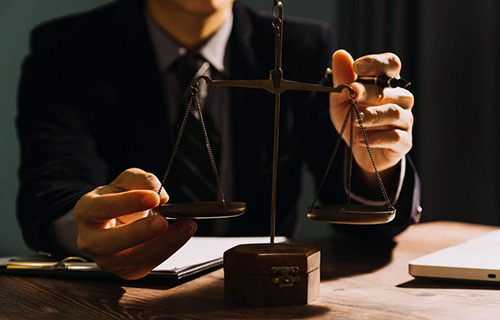Here For You, When You Need Us
At UKLaw, we believe that expert legal help should be available to everyone, whenever they need it, whatever their financial circumstances. We put our core beliefs of honesty, integrity, and transparency at the core of everything we do, helping clients from all over the country when they need it most. Every year, we help countless people secure compensation payouts after they’ve been unjustly injured, and we can help you, too.
Learn More About Compensation Claims
What Types Of Claims Can UK Law Help With?
UK Law assesses a broad array of claims and works with solicitors with various specialities. Read on for a brief overview of the types of claims we can help you with.
Services
Personal Injury ClaimsAccident At Work ClaimsRoad Traffic Accident ClaimsData Breach ClaimsCriminal Injury ClaimsMedical Negligence ClaimsCan UK Law Help Me Claim Compensation?
At UK Law we have years of experience in advising potential claimants and connecting them with the right legal representatives. While using a solicitor for your claim is not mandatory, you will definitely benefit from their knowledge and experience.
Working with a solicitor from our panel means receiving comprehensive support throughout the claims process, including gathering evidence and notifying the defendant of your intentions to make a claim. A solicitor will also interview any witnesses to the accident, negligent medical treatment, the aftermath of a data breach or a violent crime.
Claims have to comply with certain deadlines and instructions imposed by the Court, something the solicitors from our expert panel are well versed in. We’ll go into the specific type of No Win No Fee agreement they can offer further down. To ask any questions you might have, or to find out if you are eligible to claim compensation, contact our advisors today via the information given below.
We have helped many people claim compensation all across the UK
These are some of the people we helped with personal injury claims.
Can I Make A Compensation Claim On A No Win No Fee Basis?
UK Law can put you in touch with our panel of highly experienced and dedicated No Win No Fee solicitors. If your potential claim is deemed valid, your solicitor may offer a Conditional Fee Agreement to start work on your claim.
The CFA is a type of No Win No Fee contract that features some notable benefits for claimants. Such as:
- No fee to pay for the solicitor to commence work on your case.
- There is likewise no fee to pay for that work during the actual claim.
- Should the claim lose, you will not pay the solicitor a fee.
A fee will, however be paid if you win the claim. A percentage of your awarded compensation will be taken as the solicitor’s success fee. Since this percentage is legally capped by The Conditional Fee Agreements Order 2013, you will keep most of any compensation awarded to you.
We appreciate this a lot of information covering a broad range of claim types. You can browse any of the guides on our website for more detailed information. Our advisors are available 24 hours a day to handle any questions or concerns you may have, as well assess your eligibility to claim free of charge.
You can get in touch with us at any time using the following contact details:
We are here to help you
Here at UKlaw our expert advisors are on hand 24 hours a day 7 days a week to assess your compensation claim. Should you require free legal advice we can connect you to a specialist solicitor.
- Open the live chat window on your screen
Is There A Difference In Laws Between Countries Of The UK?
The devolved powers within the UK mean claiming compensation can differ slightly depending on where you are. This section aims to give general information only, for detailed information on claiming within England and Wales, Scotland or Northern Ireland, you should speak to one of our advisors.
We have summarised a few key points in each legal system below:
The Law In England and Wales
- England and Wales share a legal system referred to as “English Law” and the majority of guides on the UK Law website are centred around this.
- The Health and Safety Executive (HSE) is Britain’s national regulator for health and safety and has jurisdiction in England, Scotland and Wales.
- The Judicial College Guidelines (JCG) is a document published by the Judicial College that contains guideline award brackets for various injuries. These guidelines are averages taken from court cases in England and Wales.
Scottish Law
- Scotland has a devolved government and, subsequently, legislative independence in many areas.
- In Scotland, they have their compensation guidelines practitioners of Scottish Law can refer when valuing their client’s injuries.
- While the HSE does have jurisdiction in Scotland, they report matters to the Health and Safety Investigation Unit of the Crown Office and Procurator Fiscal Services (COPFS), along with their recommendations for disciplinary action. The HSE also coordinate with various Scottish organisations that have varying degrees of independence from their English and Welsh Equivalents.
The Law In Northern Ireland
- Like in Scotland, Northern Ireland has a devolved government, meaning many matters come under the Jurisdiction of Stormont and not Westminster.
- The Health and Safety Executive for Northern Ireland (HSENI) fulfils the same role as its Great British counterpart, while the Health and Safety at Work (Northern Ireland) Order 1978 fulfils a similar function to the 1974 Act in the English legal system.
- Compensation guidelines come from the Guidelines for the Assessment of General Damages in Personal Injury Cases in Northern Ireland. This is often referred to as the Green Book.
There are many other differences and similarities we could discuss regarding the ins and outs of claiming compensation in different devolved jurisdictions. Before deciding to make a compensation claim, you should be advised on how laws in different parts of the UK could impact you.
The team at UK Law is available 24 hours a day to provide answers and further guidance and assess your eligibility to claim for free. Use the contact information given above to talk to us today.
Client Stories
“I was at a mini-roundabout when another car just crashed into us. The shock meant the injuries didn't really surface until about 48 hours later. As a nurse, my initial instinct was to just push through and carry on. But I couldn't ignore it; I struggled with everyday things like heavy lifting and housework.More customer stories ›
I decided to look into my options and found UK Law online, where I saw they had excellent reviews. From the moment I called, the advisor was so reassuring and instantly put me at ease. Receiving the settlement was a huge weight off my mind. I truly couldn't have hoped for a smoother process or a better outcome.”

* Please note, we have anonymised our client's details and some of the facts to protect their confidentiality.
Why Choose UK Law For Your Compensation Claim?
Looking for trusted personal injury solicitors? At UK Law, we specialise in helping claimants begin the process of claiming compensation after suffering an injury in an accident. Our expert team is here to make the process simple, supportive, and stress-free.
- Specialist Panel of Solicitors: Our panel of solicitors has extensive experience in handling a wide range of personal injury claims, ensuring you receive clear and honest legal advice.
- Tailored Support: Every claim is unique. We take the time to understand your situation and provide you with free advice and support regarding your case.
- Fast & Efficient Claims Handling: The expert solicitors on our panel work fast and efficiently to help you secure compensation.
- No Win No Fee Available: Our panel of solicitors work on claims on a No Win No Fee basis, meaning there are no upfront fees and only a small success fee if you win.
- 24/7 Free Advice: Our advisors are available day and night to give you free initial guidance on your claim.
- Nationwide Service: Whether you prefer to chat online or via phone, we’re here to help wherever you are in the country.















